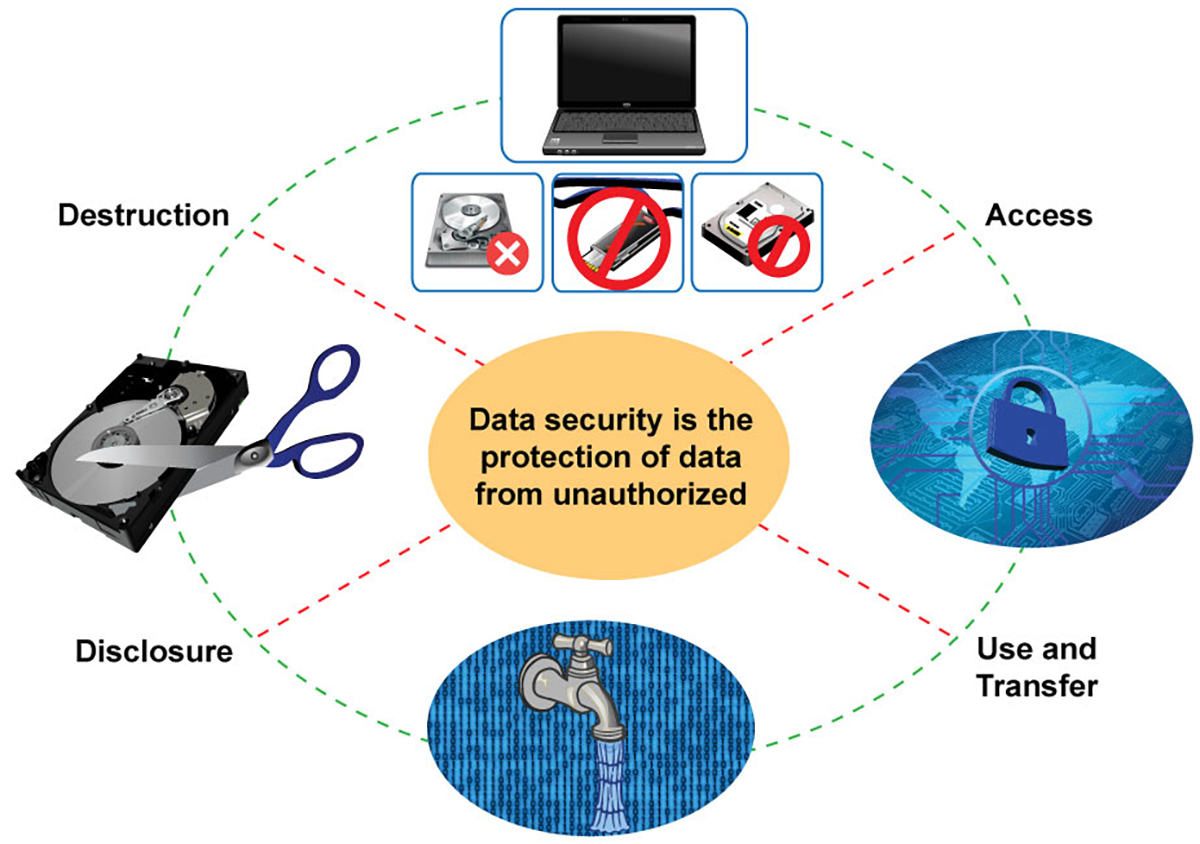Leading Tips for Ensuring Secure Data Destruction in Your Cyber Security Plan
Leading Tips for Ensuring Secure Data Destruction in Your Cyber Security Plan
Blog Article
The Significance of Effective Data Damage Practices in Safeguarding Sensitive Details and Ensuring Computer System Protection
In an era where information violations are increasingly common, the relevance of efficient data devastation methods can not be overstated. Implementing durable data devastation approaches not only mitigates these threats however also straightens with legal conformity demands, guaranteeing that companies maintain their credibility and foster customer count on.
Understanding Information Destruction
Recognizing data devastation is critical in today's digital landscape, where delicate info can conveniently be jeopardized. Effective information destruction includes not merely making certain but deleting data that data is irretrievable via extensive approaches. This procedure is important for companies that deal with personal client info, copyright, or internal files, as any kind of breach can result in extreme economic and reputational consequences.
Data damage incorporates various methods, consisting of shredding physical media, degaussing magnetic storage space tools, and employing software-based services that overwrite data numerous times. Each approach offers a specific purpose and should line up with the level of sensitivity of the details being gotten rid of. Physical destruction is often preferred for hard drives containing highly confidential data, while software approaches could be adequate for much less delicate info.
Furthermore, adhering to industry standards and regulations, such as the General Information Defense Guideline (GDPR) or the Health And Wellness Insurance Coverage Mobility and Accountability Act (HIPAA), is vital for compliance and to reduce legal threats. Organizations needs to establish a robust data devastation plan, train staff members on finest practices, and frequently audit their procedures to guarantee that all sensitive information is disposed of firmly and properly.
Threats of Inadequate Practices
Inadequate information devastation practices reveal companies to significant threats that can have significant consequences. When delicate info is not properly disposed of, it stays vulnerable to unapproved gain access to, which can lead to information breaches and identification theft. Such incidents not just jeopardize the safety and security of people however also stain the organization's online reputation, causing a loss of client trust fund and prospective economic consequences.
In addition, regulative conformity is progressively rigorous in numerous sectors. Failure to follow information damage laws can result in large penalties and legal activities against companies. These fines can divert and stress economic resources interest from core organization operations.
In addition, the abuse of recurring data can result in copyright burglary or company espionage, endangering competitive benefits (data destruction). The effect of insufficient information destruction prolongs beyond instant monetary losses; it can additionally lead to lasting damages to brand name honesty and market placement

Organizations should acknowledge that information protection is not only concerning preventing breaches; it also encompasses the responsible management of information throughout its lifecycle. Neglecting effective information devastation methods can have tragic effects, emphasizing the requirement for robust steps to reduce these risks.
Best Practices for Information Devastation
Applying efficient data destruction practices is vital for protecting sensitive information and keeping conformity with regulative standards. Organizations should take on a multi-faceted strategy to make sure that data is irretrievable, thereby preventing unapproved gain access to and potential violations.
First, information must be categorized based upon level of sensitivity, enabling organizations to apply appropriate devastation approaches tailored to the degree of danger. For electronic information, using software-based data-wiping devices that follow sector requirements can efficiently overwrite existing information. Physical damage methods, such as shredding or degaussing, are critical for gadgets that store delicate info, making certain full removal.
Developing a clear data retention plan is vital, describing how much time various kinds of details should be preserved before devastation. Regular audits of information storage systems are additionally necessary you could check here to recognize outdated or unneeded information requiring removal.
In addition, training employees on the value of data damage and the details procedures to adhere to fosters a culture of safety within the company. Finally, keeping documentation of information devastation processes supplies liability and sustains compliance with exterior policies and inner policies. By sticking to these ideal methods, companies can considerably mitigate the threats linked with data Our site exposure.
Legal and Conformity Considerations

Failure to follow these policies can cause serious penalties, consisting of substantial penalties and reputational damages. Organizations should apply a robust information destruction plan that lines up with these lawful frameworks and provides clear standards on the correct methods of information disposal, whether physical shredding or electronic cleaning.
Moreover, maintaining paperwork of information devastation activities is vital for showing conformity throughout audits or inspections. By prioritizing legal and conformity factors to consider, companies can boost their data safety and security pose and foster trust fund with stakeholders and clients, ultimately contributing to a much more safe information management environment.
Benefits of Effective Data Damage
Reliable information destruction practices extend beyond mere compliance; they offer significant advantages to organizations that prioritize them. By making sure that delicate info is irretrievably damaged, companies mitigate the danger of data breaches and the potential monetary consequences related to them. This positive method not only safeguards against unapproved accessibility yet additionally boosts the general dependability of the company in the eyes of clients and stakeholders.
Executing robust information devastation approaches, such as physical damage of storage devices or advanced information wiping methods, adds to click to find out more the fortifying of a company's cybersecurity position. data destruction. It reduces the likelihood of intellectual home theft and shields exclusive information, thereby keeping an one-upmanship on the market

Verdict
In final thought, efficient data destruction techniques are crucial for guarding delicate info and improving general computer safety and security. Ultimately, a dedication to durable data damage techniques fosters a society of duty, therefore enhancing a company's cybersecurity position and maintaining customer depend on.

Report this page